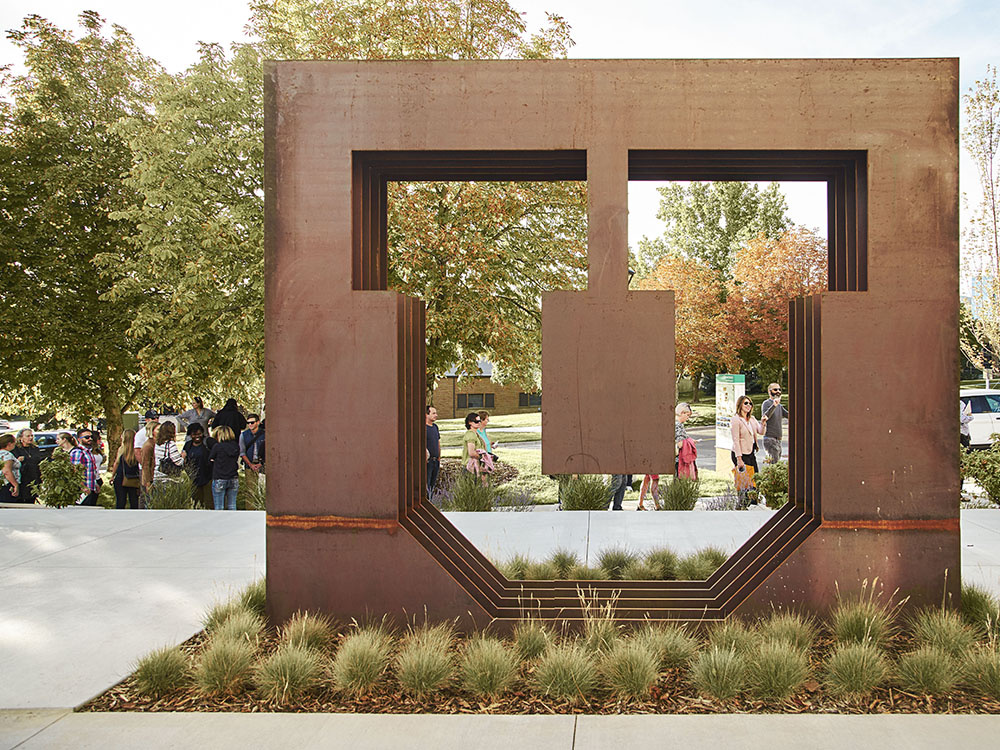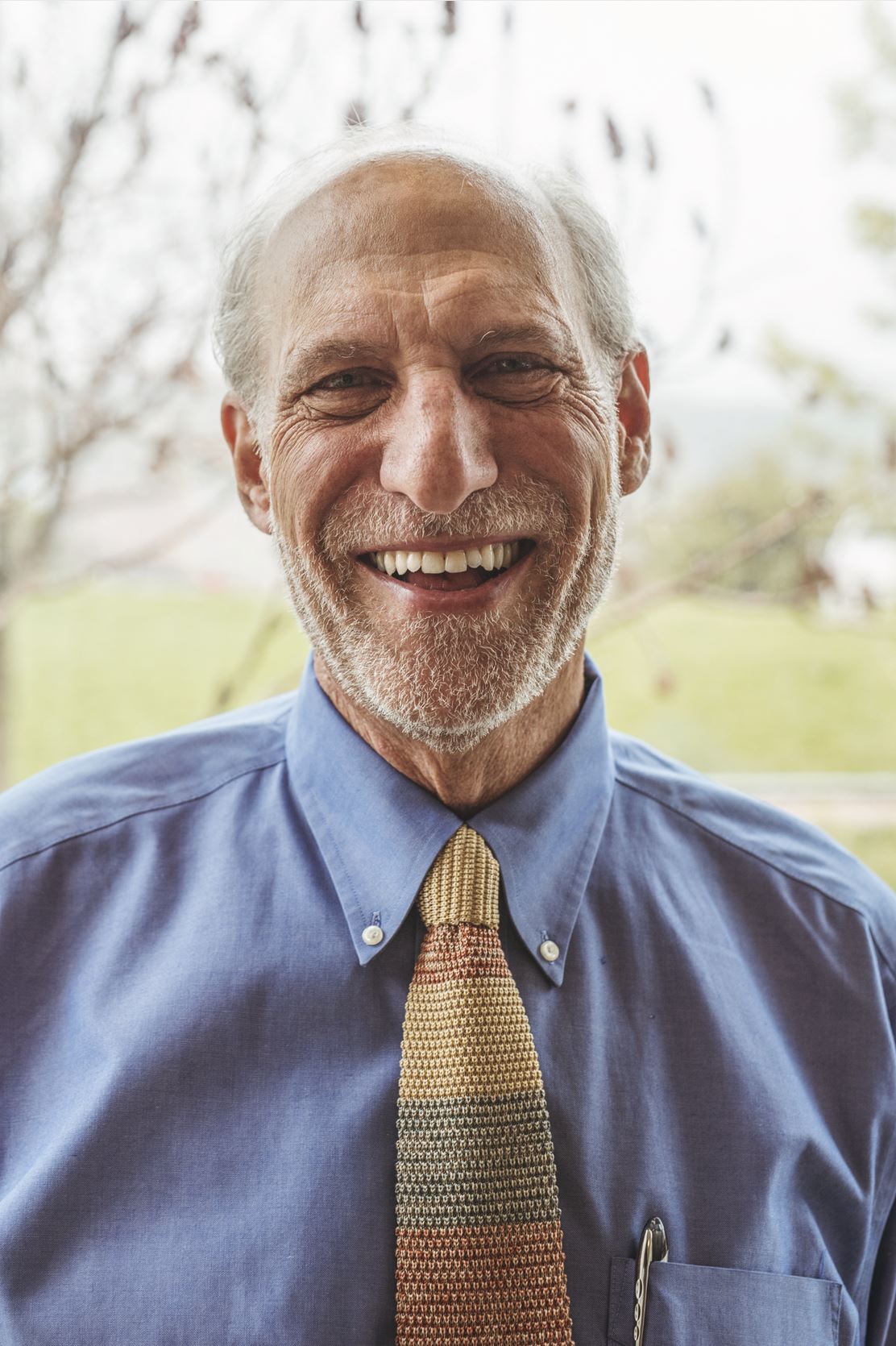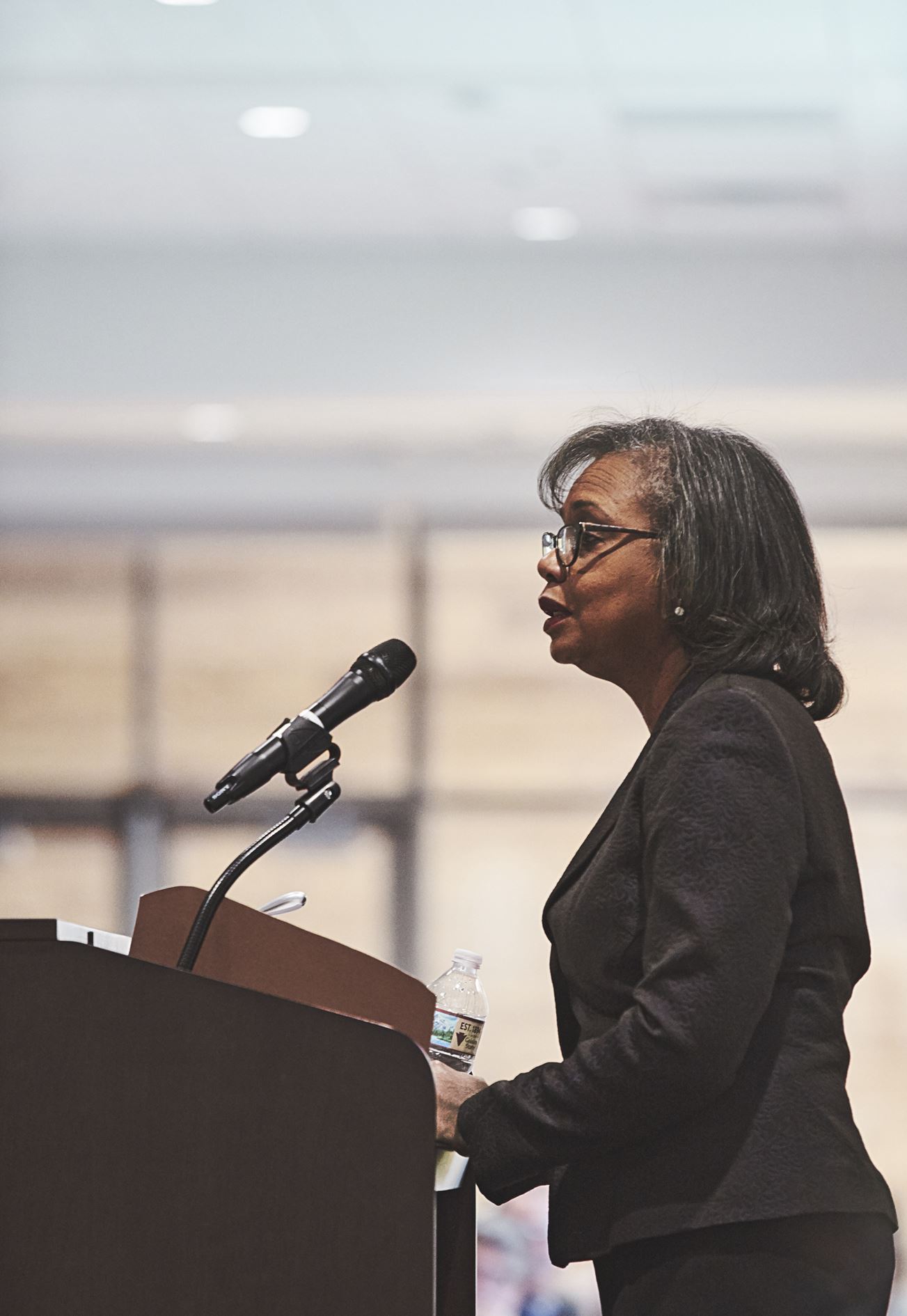A Legacy of Cultivating the Humanities


Goldberg was responsible for bringing writers, artists, world leaders, and The Church of Jesus Christ of Latter-day Saints scholars to campus to cultivate lively and inclusive dialogue about the humanities. The diverse speakers also enabled the Tanner Humanities Center to reach across campus and connect with multiple disciplines. Medical ethicist Abraham Verghese and oncologist Siddhartha Mukherjee connected the center to the medical school. Neil deGrasse Tyson connected the center with the sciences. While Tony Kushner, Anna Deavere Smith, and Suzan-Lori Parks linked the center with the arts. With a keen eye to community interests, the center also hosted Latter-day Saint scholars Richard Bushman, Kathleen Flake, and Greg Prince.
In July 2019, Goldberg concluded his tenure and passed the reins to Erika George, Samuel D. Thurman Professor of Law at the U’s S. J. Quinney College of Law. Here, Goldberg reflects on his time at the center and memories of the past 13 years.
What are some of the changes the Tanner Humanities Center experienced over the past 13 years?
The center was organized in 1988 and endowed through Carolyn Tanner Irish’s generous donation honoring her parents Obert and Grace. Several directors have guided the center including professors Pat Hanna, Gene Fitzgerald, and Vincent Cheng. Under their leadership, the center hosted the Tanner Lectures on Human Values, the Sterling McMurrin Lecture on Religion and Culture, and the David P. Gardner Lecture in the Humanities and Fine Arts. Since the beginning, the center has offered Gateway to Learning Teacher Workshops during the summers and fellowship programs for internal and external faculty and graduate students.
When I became director, I sought to build on these achievements. Our goals were to raise the profile of the humanities on campus and engage more fully with the community. As a result, we established the World Leaders Lecture Forum, the Artists in Residence Program, the Professors Off Campus Program, and the Latter-day Saints Studies Initiative, which houses an endowed graduate student fellowship and the Marlin K. Jensen Scholar in Residence Program. In addition, we increased the number of teacher workshops offered each summer from two to 10, supported and hosted the Annie Clark Tanner Fellowship in Environmental Humanities, and began featuring British National Theater screenings a decade ago.

Anita Hill speaks during the 2018 Tanner Lecture on Human Values
You scheduled many well-known speakers—many of them at very timely moments in our country’s history. How did you decide who to book?
Each year, our World Leaders Lecture Board and Tanner Lecture Board consider speakers and prioritizes them. We try to keep our eye on current issues and long-term trends in American and world politics and society. In line with this, we believed that the #MeToo movement and concerns about immigration would continue to grow in relevance on campus and in the community. To highlight these issues and to provide diverse perspectives, we decided to invite Anita Hill and former President of Mexico Vicente Fox in 2018-19. Hill’s visit was particularly poignant because it coincided directly with the Brett Kavanaugh hearings. In fact, we invited a gender studies class to meet with Hill at the same time that Christine Blasey Ford gave her testimony before Congress.
Which speaker had the biggest impact on you? Either in his/her lecture or meeting them personally.
Two Nobel Peace Prize laureates: Iranian attorney and human rights advocate Shirin Ebadi and Doctors Without Borders President James Orbinski had the greatest impact on me. These two individuals put their personal safety at risk, repeatedly, to repair the world and bring change. Ebadi works to secure women and children’s rights in Tehran and has been jailed for her efforts. Orbinski tended to the wounded during the Rwandan Civil War, saving men, women, and children, often at gunpoint. Also moving was a Tanner Lecture speaker, Andrew Solomon. He spoke powerfully about the essential need to understand people who are different from ourselves and to ensure their right to live full lives.
Who had the most surprising impact on you?
Former Director of the Central Intelligence Agency John Brennan. I expected to meet
with a Washington insider, jealous of his privilege, guarded, and careful not to take
a stand on the issues. Instead, I met a humble man who spoke candidly and from the
heart about the challenges facing America, both domestic and foreign. He was fearless
about speaking his truth and dedicated to the defense of American institutions. Subsequent
to his visit, Brennan was stripped of his top-secret security clearance. As you can
see, in our choice of lectures, we do not shy away from controversy. Our sense is
that universities must be marketplaces of ideas. People can only make up their minds
about an issue after hearing all sides.
icon
Universities must be a marketplace of ideaS
icon
If you could schedule just one more speaker, who would it be?
There are actually two speakers we tried to bring to Utah—Bono and Malala Yousafzai. We are impressed with their work regarding human rights and social justice. We believed that they present key opportunities to reach out to young women and men on campus and in the community.
What’s next for you?
After 13 years, I’m very much looking forward to returning to full-time research. I hope to complete my manuscript on American conservatism in the 20th and 21st centuries. I also want to continue dabbling in Latter-day Saint studies. I have a bit of traveling to do with my wife, Annie, and of course, there are five grandchildren who will demand their fair share of time.
